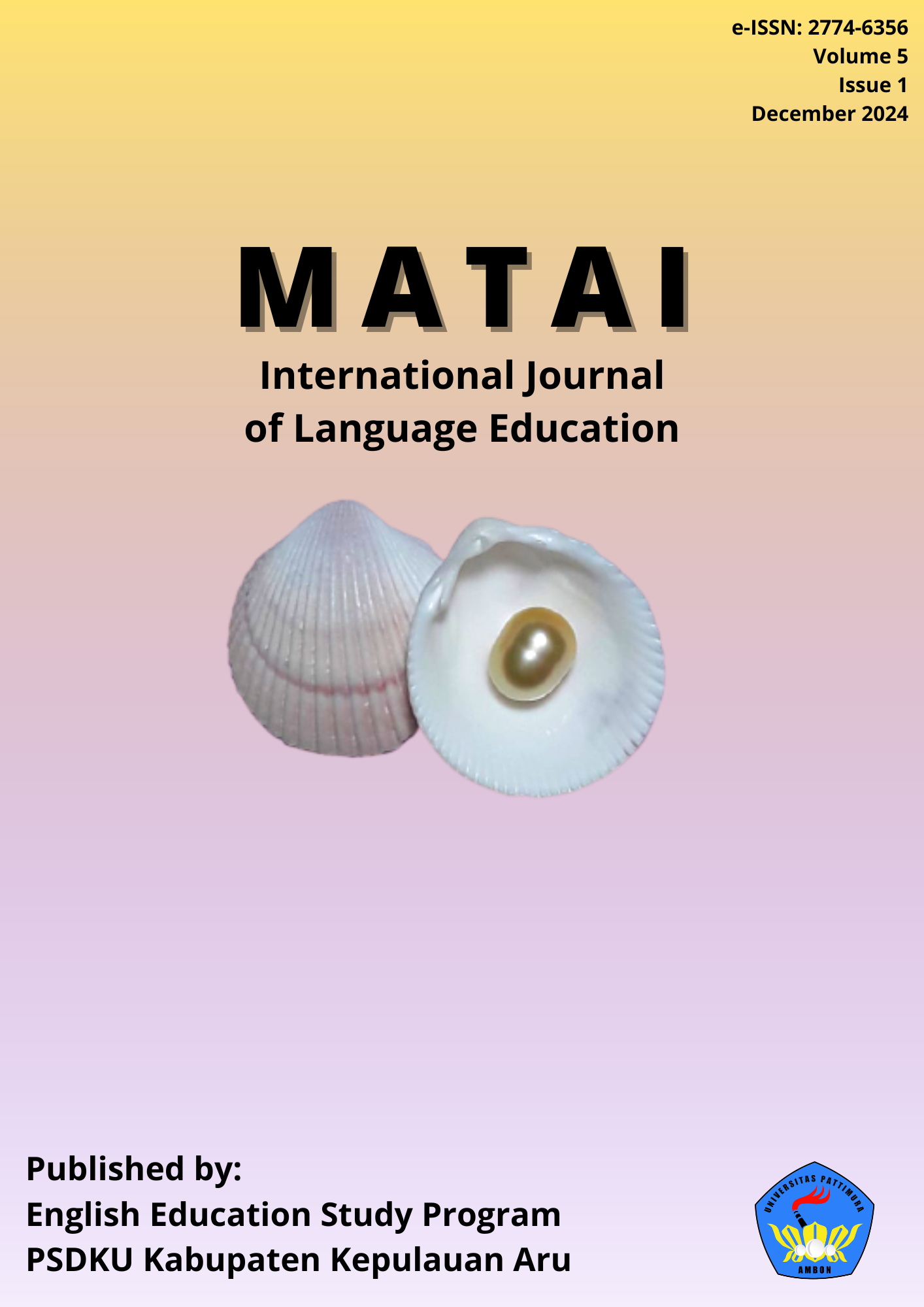Metacognitive Strategies to Pronounciation in English Education Study Program of Pattimura University
Abstract
One of the learning activities impacted by the transmission of the COVID-19 virus was a listening exercise in a university classroom. Regarding that assertion, listening comprehension requires help from learners' English language components and lecturers' aid. The study's objectives were: 1) to describe the influence of synchronous and asynchronous audio in online learning (Synchronous and Asynchronous in English Education Study Program); 2) to describe students' listening comprehension; and 3) to determine the positive and significant influence of synchronous and asynchronous audio in online learning on student listening comprehension. This study used a quantitative technique using Ex-post Facto research as the design. Purposive sampling was used to choose 32 students from the English Education Study Program in 2018 and 2019. A questionnaire was used to collect data, and the students' listening final grades were evaluated using IBM SPSS 20.0. The findings of this study revealed that: 1) Synchronous and Asynchronous at English Education Study Program was in the medium category, as the highest score was 76; 2) Students' Listening Comprehension was in the "A" category, as the mean score was 82; 3) Synchronous and Asynchronous have a favorable and substantial impact on students' listening comprehension, as evidenced by the coefficient determinant value of 0.267 (26.7%). The findings of this study are intended to be valuable to lecturers, students, and other researchers.
Downloads
Copyright (c) 2024 Renata C. G. V. Nikijuluw, Monica Monica

This work is licensed under a Creative Commons Attribution 4.0 International License.
Authors who decide to share their articles with this journal must agree with these requisites:
|
1. The author, as the copyright owner, gives Matai the right to publish their work 2. Authors can share their articles, but they have to use Matai's published version by acknowledging Matai as the source. 3. Authors are encouraged to share their work online in order to let people know about their articles which can lead to more citations of the published work. |



